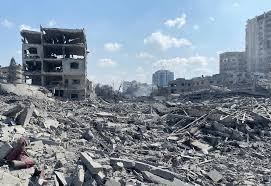The global phenomenon of dehumanization is marked especially by widespread violence and conflict, frequently leading to an alarming number of victims
His arrival in the archipelago country "readies information for us, something that enhances our belief," said Dad Hieronymus Sridanto Ariwobo, a Catholic clergyman in Jakarta.
"And second of all, the pope will come here as a sign (of) the connection in between the Christian and Muslim here in the nation."
Traditionally, the country's form of Islam is moderate and syncretic, often resting comfortably together with animist and various other pre-Islamic methods, while the specify belief, known as "Pancasila," motivates spiritual flexibility and social justice.
"Indonesia is a great nation, a mosaic of societies, ethnic backgrounds and spiritual customs, an abundant variety, which is also reflected in the varied community," Francis said throughout Thursday's inter-faith meeting, which the pontiff invested in a mobility device. "May no one catch the appeal of fundamentalism and physical violence."
The 87-year-old is presently on the lengthiest journey of his pontificate, despite facing health and wellness challenges and having actually began to use a mobility device recently.
He is scheduled to hold a mass at Jakarta's Nationwide Arena later on Thursday, which is expected to be attended by about 80,000 individuals.
The following day he fallen leaves for Papua New Guinea, the second leg of a marathon 12-day visit of 4 nations in Southeast Australia or europe and the Southern Pacific, which also consists of Eastern Timor and Singapore.
Indonesia is a symbolically solid choice for the type of inter-faith approach Francis has accepted.
In the 13th century, investors from Arabia, Gujarat and China reached what is currently Indonesia, buying cloves, cinnamon and nutmeg. Some of those spice-trade vendors also brought with them Islam and, as some chosen the islands of Java and Sumatra, the religious beliefs slowly mixed with local animist ideas.
Christianity concerned Indonesia with Portuguese investors greater than 200 years later on, mainly in the eastern islands of Maluku and Timor. The Jesuit missionary St. Francis Xavier operated in the Maluku islands, but by the late 1600s the Dutch Eastern India Company had removed all Catholic missionaries.
After Japanese occupation throughout the Second World Battle, nationalist leaders Sukarno and Mohammad Hatta stated Indonesian self-reliance in 1945. Muslims and Christians have coexisted in Indonesia for years since its modern founding, and most of its Islamic believers are extensively moderate and syncretic.


